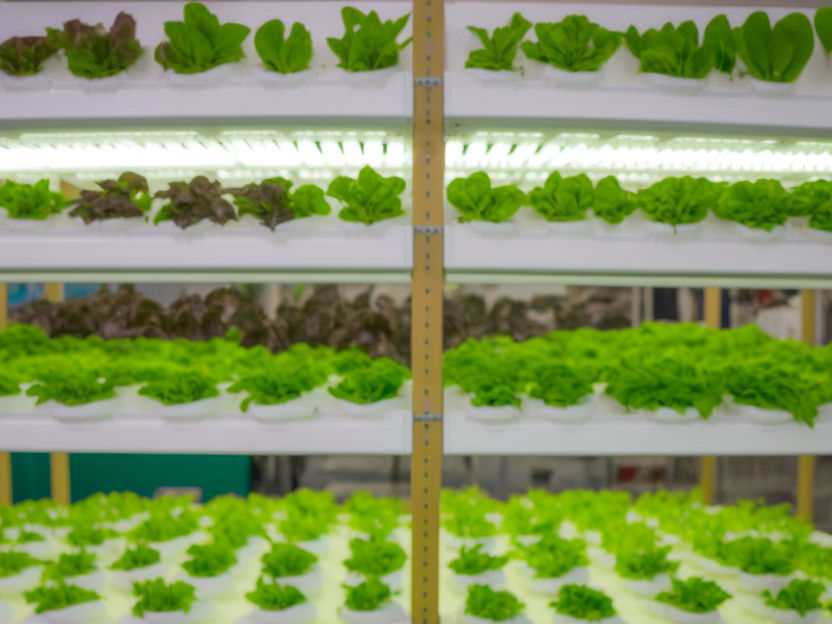Infarm targets a net-zero future
Vertical farming company Infarm has announced its science-based targets as part of its commitment to change food systems for good
Advertisement
Infarm, a leading vertical farming company and co-host of the Food Systems Pavilion at COP27, has submitted its climate targets to the Science Based Targets initiative (SBTi), putting it firmly on the pathway to becoming net-zero by 2045. Infarm is the first Vertical Farming company to set science-based targets.

Computer generated picture
As part of its overall impact vision, Infarm has committed to the following near-term reductions of CO2 emissions against a 2021 base year: By 2030, Infarm is committing to a 42% absolute reduction target for its Scope 1 (direct emissions linked to activities owned or controlled by Infarm), and Scope 2 (indirect emissions linked to the purchase of electricity across Infarm) combined emissions and a 48% intensity reduction target (by tonne of produced plants) for its Scope 3 emissions (indirect emissions linked to upstream and downstream activities in Infarm’s supply chain).
To ultimately reach net-zero by 2045, Infarm is committing to a total reduction of 90% of Scope 1 and 2 emissions against the 2021 base year, and a total intensity reduction of 97% of Scope 3 in the same timeline, with the remaining emissions to be tackled by net-zero aligned, permanent carbon removal technologies.
Sudhanshu Sarronwala, Chief Impact Officer at Infarm: “According to the United Nations, food systems account for over one-third of the global greenhouse gas emissions. Knowing that we have to produce more food than ever before to feed a growing population, we need to act now and drive change in the food systems. Tech-driven companies like Infarm can and need to be the driver of this transition to a resource-efficient and climate-friendly food production.”
“We don’t have all the answers yet but we are facing the challenge head-on, and acting for a net-zero future. Setting SBTi Targets is well aligned to our Impact Vision and in keeping with us being a recently Certified B Corporation,” he added.
To tackle the major drivers of its carbon emissions, the company has conducted a hotspot analysis and is working on a mitigation pathway that will help it reduce emissions effectively and economically, and secure the future of the business and its stakeholders. Infarm’s main challenge lies in its supply chain emissions, with Scope 3 accounting for nearly 70% of its overall footprint. Long-term collaboration with strategic suppliers to jointly decarbonise the supply chain will be essential in Infarm’s net-zero roadmap. A continued focus on sourcing renewable electricity, producing resource-efficient crops, and tackling the impact of its climate-control systems will also play a critical role in achieving Infarm’s targets.
In its Impact Vision Paper published earlier this year, Infarm announced that it had signed a commitment to setting science-based targets. Delivering on that commitment today, Infarm has developed these targets as a key driver of its climate strategy to reach a net-zero emissions state in line with the Paris Climate Accord. Science shows that global emissions must be capped in time to secure a 1.5°C maximum average temperature rise by the end of the century, and prevent catastrophic climate change.
Other news from the department business & finance
Most read news
More news from our other portals
Something is happening in the food & beverage industry ...
This is what true pioneering spirit looks like: Plenty of innovative start-ups are bringing fresh ideas, lifeblood and entrepreneurial spirit to change tomorrow's world for the better. Immerse yourself in the world of these young companies and take the opportunity to get in touch with the founders.































































